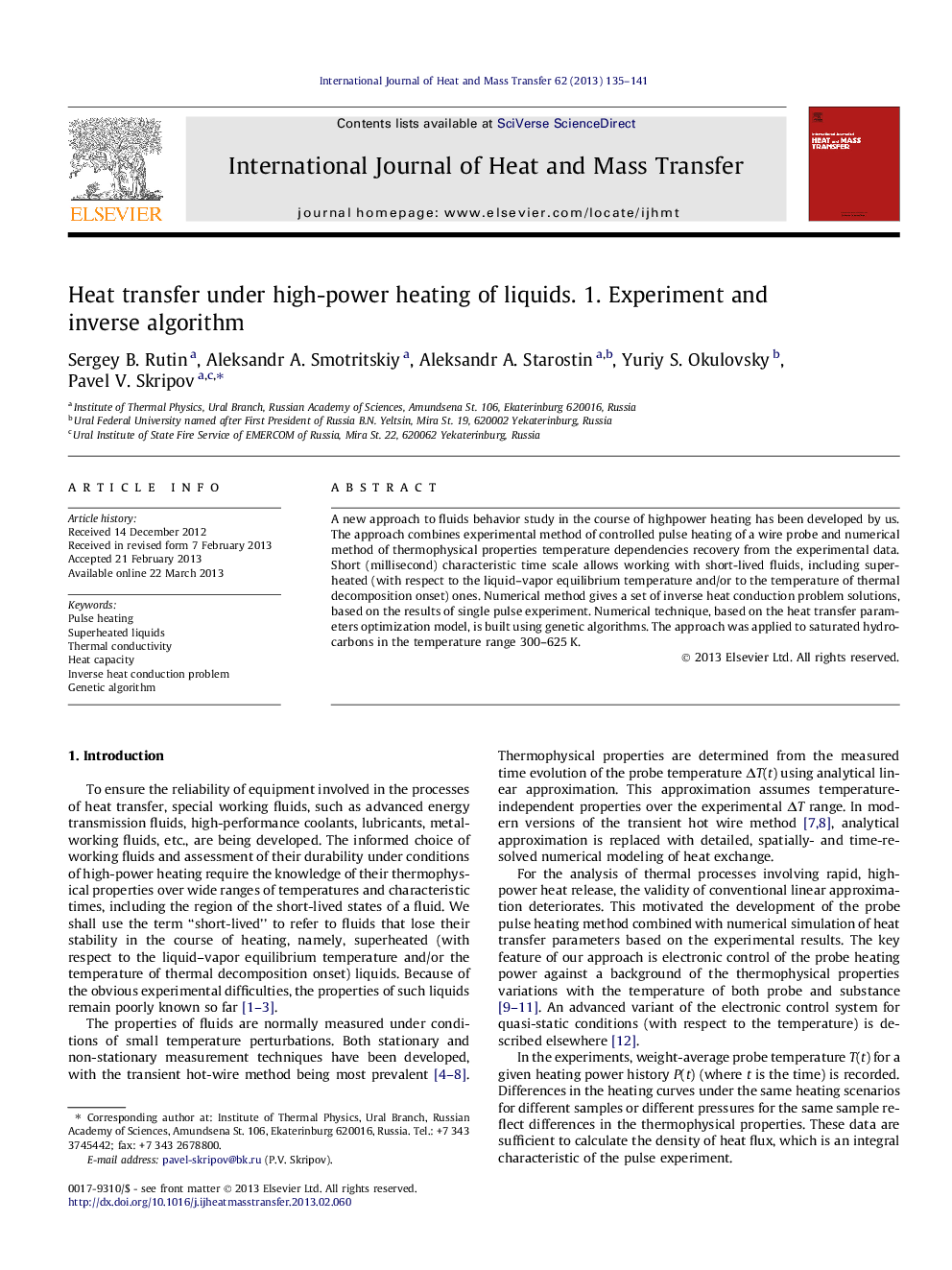| Article ID | Journal | Published Year | Pages | File Type |
|---|---|---|---|---|
| 658199 | International Journal of Heat and Mass Transfer | 2013 | 7 Pages |
A new approach to fluids behavior study in the course of highpower heating has been developed by us. The approach combines experimental method of controlled pulse heating of a wire probe and numerical method of thermophysical properties temperature dependencies recovery from the experimental data. Short (millisecond) characteristic time scale allows working with short-lived fluids, including superheated (with respect to the liquid–vapor equilibrium temperature and/or to the temperature of thermal decomposition onset) ones. Numerical method gives a set of inverse heat conduction problem solutions, based on the results of single pulse experiment. Numerical technique, based on the heat transfer parameters optimization model, is built using genetic algorithms. The approach was applied to saturated hydrocarbons in the temperature range 300–625 K.
